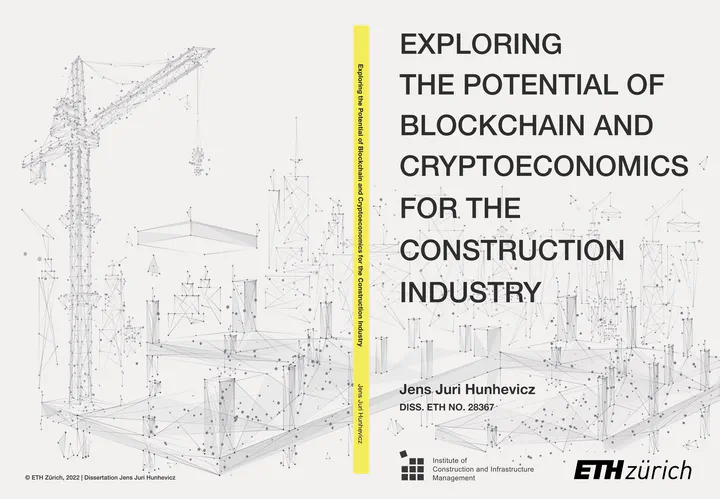Exploring the Potential of Blockchain and Cryptoeconomics for the Construction Industry

Abstract
The construction industry needs to become more efficient and productive in order to cope with increasing housing and infrastructure demand, as well as problems associated with climate change. Digitalization is often seen as the solution for this transformative change, but so far, its anticipated impact did not materialize. The construction industry is complex and current project delivery fails to achieve the needed trusted collaboration, while also emphasizing extreme fragmentation. The resulting omnipresent trust issues also continue with digital coordination.
Blockchain became increasingly popular in the last fourteen years. The technology shifts trust from middlemen and transacting parties towards the technical system. Moreover, smart contracts allow to code interaction logic with blockchain transactions for decentralized workflows. It is not surprising that a technology hyped as ``trust machine’’ attracted attention from scholars as a way to improve trust in the troubled construction industry.
This thesis aims to better understand the potential of blockchain for the construction industry. The focus lies on the under-researched aspect of cryptoeconomics, using smart contracts to encode institutional coordination.
The first part of the thesis builds theoretical foundations to understand the promise of blockchain and cryptoeconomics for the construction industry. The thesis assesses the need for blockchain by matching technical capabilities with proposed use cases. Moreover, it outlines how cryptoeconomic mechanisms align with the industry structure, and finally conceptualizes how they can be applied to collaborative project deliveries trough a lens of Common Pool Resource theory.
The second part of the thesis contains two proof of concepts that demonstrate the potential and feasibility of cryptoeconomics in the construction industry. The prototypes show new possibilities for blockchain-based cross-phase and cross-trade incentive mechanisms with performance based smart contracts, but also cryptoeconomic mechanisms for novel forms of coordination between humans and machines with no1s1 - a self-owning house.
In summary, blockchain is interesting for applications in the construction industry that rely on cryptoeconomic mechanisms. They offer new possibilities to create incentives in interplay with the ongoing digitalization towards rethinking economic coordination in the construction industry. Common Pool Resource theory is a powerful lens to conceptualize such new forms of decentralized coordination. Furthermore, cyberphysical integration with blockchain enables economic machine participation. Finally, the research demonstrates that early prototyping of cryptoeconomic applications for the construction industry is already possible.
Overall, this thesis investigates a novel research area at the interdisciplinary intersection of the construction industry, blockchain, and common pool resource theory. It extends the state-of-the-art research in construction management both with novel theoretical work and proof of concepts as a solid foundation for more research on blockchain and cryptoeconomics in the construction industry.
Type
Publication
ETH Zurich